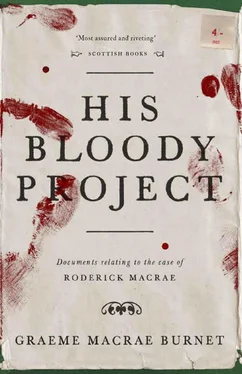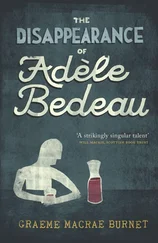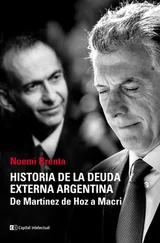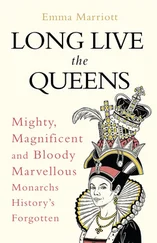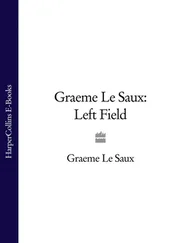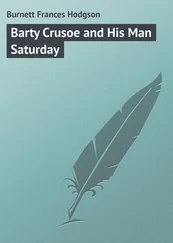Graeme Burnet - His Bloody Project
Здесь есть возможность читать онлайн «Graeme Burnet - His Bloody Project» весь текст электронной книги совершенно бесплатно (целиком полную версию без сокращений). В некоторых случаях можно слушать аудио, скачать через торрент в формате fb2 и присутствует краткое содержание. Год выпуска: 2015, Издательство: Contraband, Жанр: Современная проза, на английском языке. Описание произведения, (предисловие) а так же отзывы посетителей доступны на портале библиотеки ЛибКат.
- Название:His Bloody Project
- Автор:
- Издательство:Contraband
- Жанр:
- Год:2015
- ISBN:нет данных
- Рейтинг книги:5 / 5. Голосов: 1
-
Избранное:Добавить в избранное
- Отзывы:
-
Ваша оценка:
- 100
- 1
- 2
- 3
- 4
- 5
His Bloody Project: краткое содержание, описание и аннотация
Предлагаем к чтению аннотацию, описание, краткое содержание или предисловие (зависит от того, что написал сам автор книги «His Bloody Project»). Если вы не нашли необходимую информацию о книге — напишите в комментариях, мы постараемся отыскать её.
A brutal triple murder in a remote northwestern crofting community in 1869 leads to the arrest of a young man by the name of Roderick Macrae. There’s no question that Macrae is guilty, but the police and courts must uncover what drove him to murder the local village constable.
And who were the other two victims? Ultimately, Macrae’s fate hinges on one key question: is he insane?
His Bloody Project — читать онлайн бесплатно полную книгу (весь текст) целиком
Ниже представлен текст книги, разбитый по страницам. Система сохранения места последней прочитанной страницы, позволяет с удобством читать онлайн бесплатно книгу «His Bloody Project», без необходимости каждый раз заново искать на чём Вы остановились. Поставьте закладку, и сможете в любой момент перейти на страницу, на которой закончили чтение.
Интервал:
Закладка:
‘I know nothing of these regulations with which you are so besotted,’ said my father.
Broad chuckled to himself. ‘I think we are all aware of the regulations. It does not become you to feign ignorance of them.’
My father inhaled sharply through his nose. His pipe was gripped so tightly in his fist that his knuckles had turned white.
‘I regret that you have wasted a morning’s labour,’ said Broad, ‘but I must ask you to return this sea-ware from whence it came.’
‘I shall do no such thing,’ said my father.
Lachlan Broad exhaled slowly and made a clicking sound with his tongue.
‘As your village constable I would advise you to do as I suggest. I am giving you the opportunity to rectify this transgression without levying a fine, which I know you can ill afford to pay. And I am quite sure you would prefer to resolve this matter without the involvement of the factor.’
He took a step back from my father, then gave him a pat on the shoulder and said, ‘I shall leave it to you. I have no doubt you will make the correct decision.’
Then he made a sign to his brother and the two of them made their way back to the village. My father snapped his pipe in two, then cast the pieces on the shore and crushed them under the heel of his boot. Then he told me to return the sea-ware to the shore, and strode off back towards the house.
That same evening, Lachlan Broad paid a visit to our house. My father was sitting in his chair gazing out of the window and must have seen him approach, but when Broad stepped over the threshold, he lowered his eyes to the book on his lap and pretended to be unaware of his presence. Jetta looked up from her chores and upon seeing him her eyes widened and she inhaled sharply, her lips parted. Lachlan Broad looked at her intently, but did not greet her. He then knocked on the door jamb to gain my father’s attention and asked if he might have a few words with him. My father returned his gaze to his book and affected to finish the passage he was reading. He then stood up and took a few paces towards Broad.
‘No doubt if I were to refuse you entry to my house,’ he said, ‘you would point out that it is not my house at all, but the property of the laird, and as such I have no right to impede you.’
Lachlan Broad laughed heartily as if my father had made an amusing joke. ‘I’m sure we have not yet reached the point where we would refuse each other the hospitality of our homes.’
He then slapped him on the arm as if they were the best of friends and, keeping his hand about my father’s shoulder, steered him towards the table. ‘I would be loath to think that our conversation this morning might tarnish our good relations.’
To this my father made no reply, but he did not resist Broad’s manoeuvre. The two men sat down at the table — my father at the head, Broad on the bench with his back to the door, so that his face was lit only by the orange glow of the fire. He appeared eager for the atmosphere to be convivial. I was standing with my back to the dresser. He enquired after my health and, not wishing to displease him, I replied that I was quite well. He asked me if I was not going to join them at the table. I looked to my father and, as he did not object, I did so. Broad then gestured towards the swee and in an excessively jovial manner said, ‘Jetta, is there not a strupach to greet the weary traveller?’
Jetta looked to my father, who made no sign one way or the other. She thus took it upon herself to prepare tea, and while she did so Broad directed a number of questions towards her, all in a most affable tone. Jetta replied politely, but with a minimal expenditure of words and without once raising her eyes to him. I noticed, however, that her cheeks were quite crimson as she placed the cup before our visitor. She then, at my father’s behest, retired to the back chamber. Broad took a sip of his tea and let out an appreciative sigh, as if he had indeed travelled a great distance to reach us.
‘John,’ he began, leaning forward, ‘I fear the incident on the shore might have provoked some ill feeling in you. I thus thought it wise to apprise you of my view of this morning’s occurrence, so that you might understand that I had no alternative to acting as I did.’
As my father made no response, he continued, ‘I only ask that you consider the consequences of allowing you to gather the sea-ware.’
‘Families have gathered sea-ware since time immemorial,’ said my father, ‘and I recall no consequences, as you call them.’
‘That is of course true,’ said Broad, ‘but perhaps I have not expressed myself clearly. It is not, in itself, the gathering of the sea-ware which is at issue. The issue is the absence of the proper authority to do so. Had I allowed you to continue with your harvesting this morning, would that not have been taken — by individuals less scrupulous than yourself — as an indication that it was acceptable to gather sea-ware as and when people wished? I could hardly have allowed you to continue and then tomorrow ask Mr Gregor to desist. He would quite rightly object that I had allowed you to gather sea-ware, so why should he not do the same? The regulations, I’m sure you would agree, must apply equally to all.’
Here he spread his great hands in front of him as if to suggest that what he had said was irrefutable.
‘Now, while I appreciate the inconvenience of returning the sea-ware to the shore, I am sure that you can see that had I not acted as I did, I would have been sanctioning all such unauthorised gathering of sea-ware. As you rightly point out, such gathering has long taken place unchecked, but while you might think there are no consequences to this, I would contend that the consequence is the general flouting of the regulations of which we have all been guilty. As I was elected to the position of constable with the express purpose of restoring order, had I overlooked this morning’s transgression, I would make a mockery of my regime.’
He paused for a sip of tea and placed the cup delicately back on the saucer. My father’s eyes followed the motion of his hand. A period of silence ensued, which it was clear that my father was not going to break. Lachlan Broad turned to me and said, ‘Your father is a man of principle, Roddy. I fear I have not convinced him of my good intentions.’
I did not reply, but cast my eyes to the table to avoid his gaze. He then addressed my father again, his tone now betraying a sense of exasperation.
‘Perhaps you feel that my application of the regulations is fanatical, or that I obtain some personal gratification from the exercise of these powers. I can assure you that nothing could be further from the truth. It is quite true that, in itself, the gathering of sea-ware is a trifling matter, but if it is permissible to take sea-ware from the shore, would the people not be correct in concluding that it is also permissible to take fish from the rivers or deer from the hillside?’
‘I do not see that the two things are comparable,’ said my father.
‘But they are,’ said Broad, wagging his forefinger to emphasise the point. ‘I would not assume to instruct a devout man like yourself on matters of theology, but the Eighth Commandment does not, I believe, make any distinction between the theft of a large item and a small one.’
‘Do you accuse me of stealing?’ said my father quietly.
‘I accuse you of nothing,’ said Broad, with a wave of his hand, ‘but it is difficult to see how the taking of something which does not belong to you could be otherwise construed.’
My father considered this for a few moments before stating that if Broad had said his piece, there was no reason for him to remain any longer.
The constable did not stir from the bench. He drank the last of his tea and ran the back of his hand over his mouth. His fingers remained at his face for some moments, smoothing his moustache.
Читать дальшеИнтервал:
Закладка:
Похожие книги на «His Bloody Project»
Представляем Вашему вниманию похожие книги на «His Bloody Project» списком для выбора. Мы отобрали схожую по названию и смыслу литературу в надежде предоставить читателям больше вариантов отыскать новые, интересные, ещё непрочитанные произведения.
Обсуждение, отзывы о книге «His Bloody Project» и просто собственные мнения читателей. Оставьте ваши комментарии, напишите, что Вы думаете о произведении, его смысле или главных героях. Укажите что конкретно понравилось, а что нет, и почему Вы так считаете.
